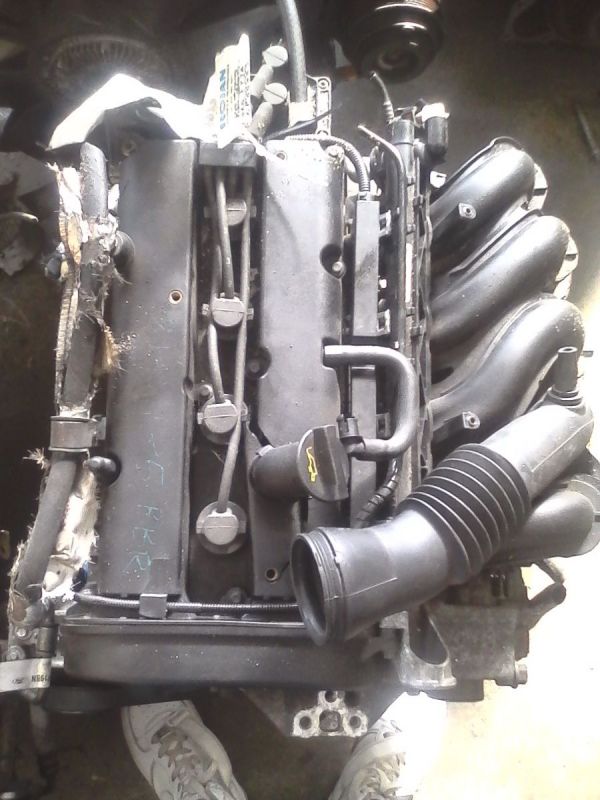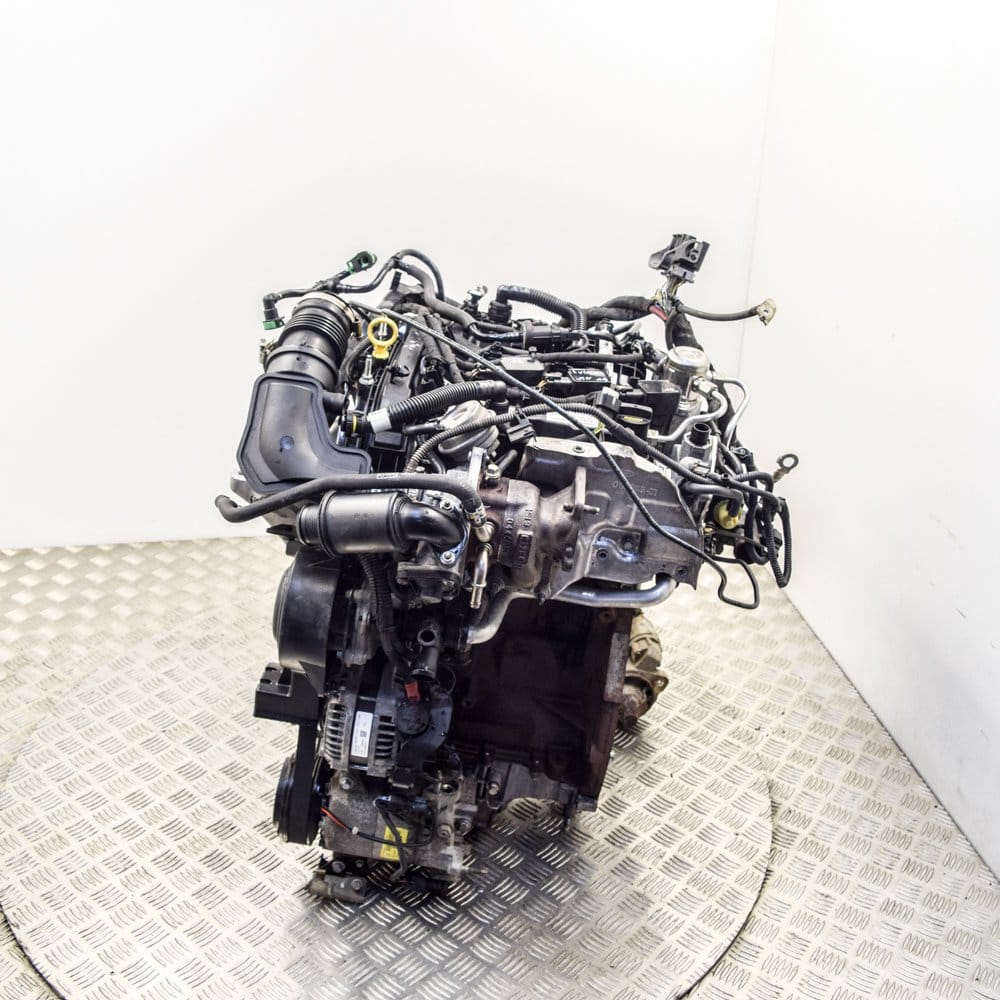How a Ford Fiesta Engine Tune-Up Can Improve Your Car’s Performance
How a Ford Fiesta Engine Tune-Up Can Improve Your Car’s Performance
Blog Article
Unlocking the Power of Engines: A Comprehensive Guide to Efficiency and Effectiveness
Understanding the elaborate auto mechanics of engines is important for both performance lovers and daily chauffeurs. The solutions might redefine our strategy to engine efficiency and effectiveness in methods that are both enlightening and important.
Understanding Engine Basics
What comprises the basic technicians of an engine? At its core, an engine is a device developed to convert gas right into mechanical power via a series of controlled surges or combustion procedures.
The crankshaft after that transforms this straight movement into rotational power, which ultimately powers the vehicle. The camshaft regulates the opening and closing of the valves, managing the intake of air and gas and the expulsion of exhaust gases. Furthermore, the engine depends on a thoroughly adjusted fuel-air blend, ignition system, and cooling system to make sure ideal performance and performance.
Understanding engine fundamentals likewise entails recognizing the significance of engine cycles, such as the four-stroke cycle, which consists of intake, power, exhaust, and compression strokes. Each phase is crucial in making sure the engine works smoothly and successfully. Mastery of these basic mechanics prepares for discovering extra complicated engine characteristics and performance metrics, necessary for maximizing both power output and effectiveness.
Trick Performance Metrics
Key performance metrics are necessary for evaluating an engine's effectiveness and power result, providing important understandings for both consumers and suppliers. These metrics serve as benchmarks for engine performance, enabling informed decisions in manufacturing, acquiring, and style.
Among the main metrics is horsepower, which measures the engine's capability to execute job over time. Torque, gauged in pound-feet, is another essential statistics that indicates the engine's rotational pressure, directly influencing acceleration and towing ability. Fuel performance, commonly gauged in miles per gallon (MPG) or litres per 100 kilometers (L/100km), evaluates how successfully the engine transforms fuel into activity, influencing functional costs and environmental considerations.
Furthermore, thermal performance procedures exactly how well an engine converts gas power right into helpful job, revealing insights right into power losses mostly via warm. Discharge levels, including CO2 and NOx, are also essential, showing the engine's environmental impact and conformity with regulative criteria.

Tuning Techniques for Efficiency
Tuning techniques play a considerable function in improving engine effectiveness by enhancing performance metrics determined in earlier discussions (ford fiesta engine). Numerous approaches exist to make improvements an engine, each adding to boosted gas economic situation and decreased exhausts
One effective method is changing the air-fuel proportion, making certain the engine runs within the ideal combustion regime. A leaner combination can improve gas effectiveness, but it should be stabilized to avoid misfires or engine knock. Additionally, reprogramming the engine administration system can rectify parameters such as ignition timing, which better improves efficiency while keeping power outcome.
An additional vital technique involves modifying the consumption and exhaust systems. Upgrading to high-performance air filters and exhaust headers can reduce back pressure, promoting better air movement. This enables the engine to take a breath more openly, leading to enhanced burning effectiveness.
Furthermore, the execution of sophisticated adjusting devices, like dyno testing, provides exact information that allows targeted adjustments. Regularly keeping an eye on these efficiency metrics guarantees that adjusting initiatives produce the desired efficiency results. Collectively, these strategies not only strengthen engine performance yet also add to lasting sustainability in engine procedures.
Maintenance for Optimal Performance
Regular engine upkeep is vital for achieving ideal efficiency and longevity. A well-kept engine not look at these guys just operates effectively however additionally decreases the risk of expensive fixings and break downs. Secret parts calling for regular interest consist of oil, filters, belts, and ignition system.
Transforming the engine oil at advised periods is essential, as oil lubricates moving components and protects against overheating. Changing oil and air filters makes sure that impurities do not impair engine function. Overlooking these elements can cause lowered performance and potential engine damage.
Furthermore, checking and changing used belts and tubes is vital to stop abrupt failings. Timing belts, particularly, should be replaced according to the manufacturer's schedule to avoid devastating engine damages.
Flicker connects need to additionally be examined and replaced as necessary, since they play an important function in ignition and gas effectiveness.
Future Patterns in Engine Technology
Embracing advancements in technology, the future of engine design is poised to revolutionize performance and efficiency throughout numerous applications. Among the most substantial fads is the shift towards electrification. Hybrid and totally electric powertrains are ending up being progressively conventional, using minimized discharges and improved fuel efficiency. This change is not simply a pattern yet a requirement driven by governing stress and consumer need for sustainable solutions.
Furthermore, technologies in materials science are causing lighter, stronger elements that improve engine efficiency while minimizing power consumption. Advanced manufacturing strategies, such as 3D printing, enable for the creation of complex geometries that enhance air movement and thermal management, hence maximizing burning processes.
Furthermore, the assimilation of expert system and artificial intelligence is established to change engine diagnostics and efficiency tuning. These technologies can assess substantial quantities of information in actual time, enabling predictive upkeep and customized performance improvements.
Conclusion
In final thought, unlocking the power of engines requires a comprehensive understanding of their auto mechanics and performance metrics. Applying reliable read here tuning methods and adhering to regular upkeep techniques substantially boost engine capabilities.
In addition, the engine depends on a carefully adjusted fuel-air blend, ignition system, and cooling system to make certain ideal performance and performance.
Comprehending engine basics additionally includes identifying the relevance of engine cycles, such as the four-stroke cycle, which includes consumption, compression, power, and exhaust strokes. Proficiency of these fundamental auto mechanics lays the groundwork for checking out more complicated engine characteristics and performance metrics, look at more info essential for enhancing both power result and effectiveness.

Welcoming innovations in modern technology, the future of engine layout is positioned to change efficiency and effectiveness across various applications.
Report this page